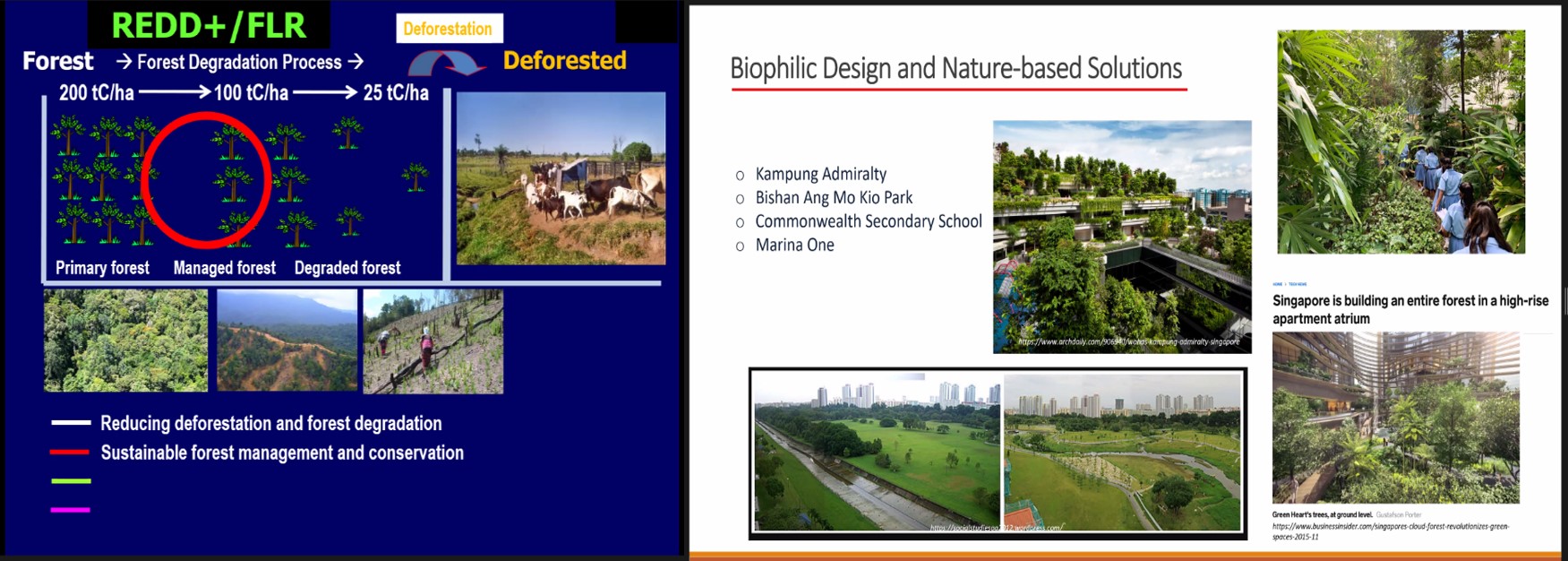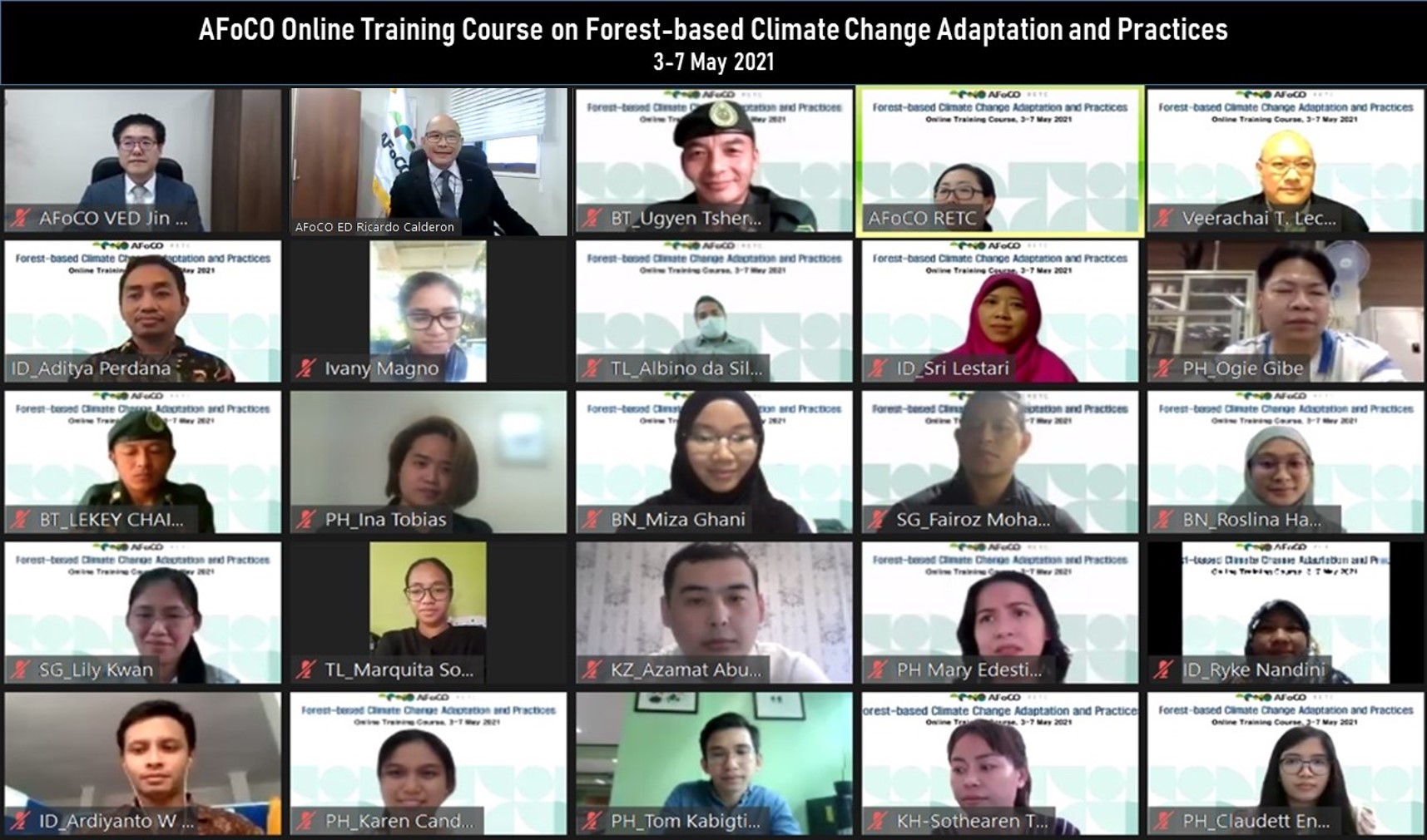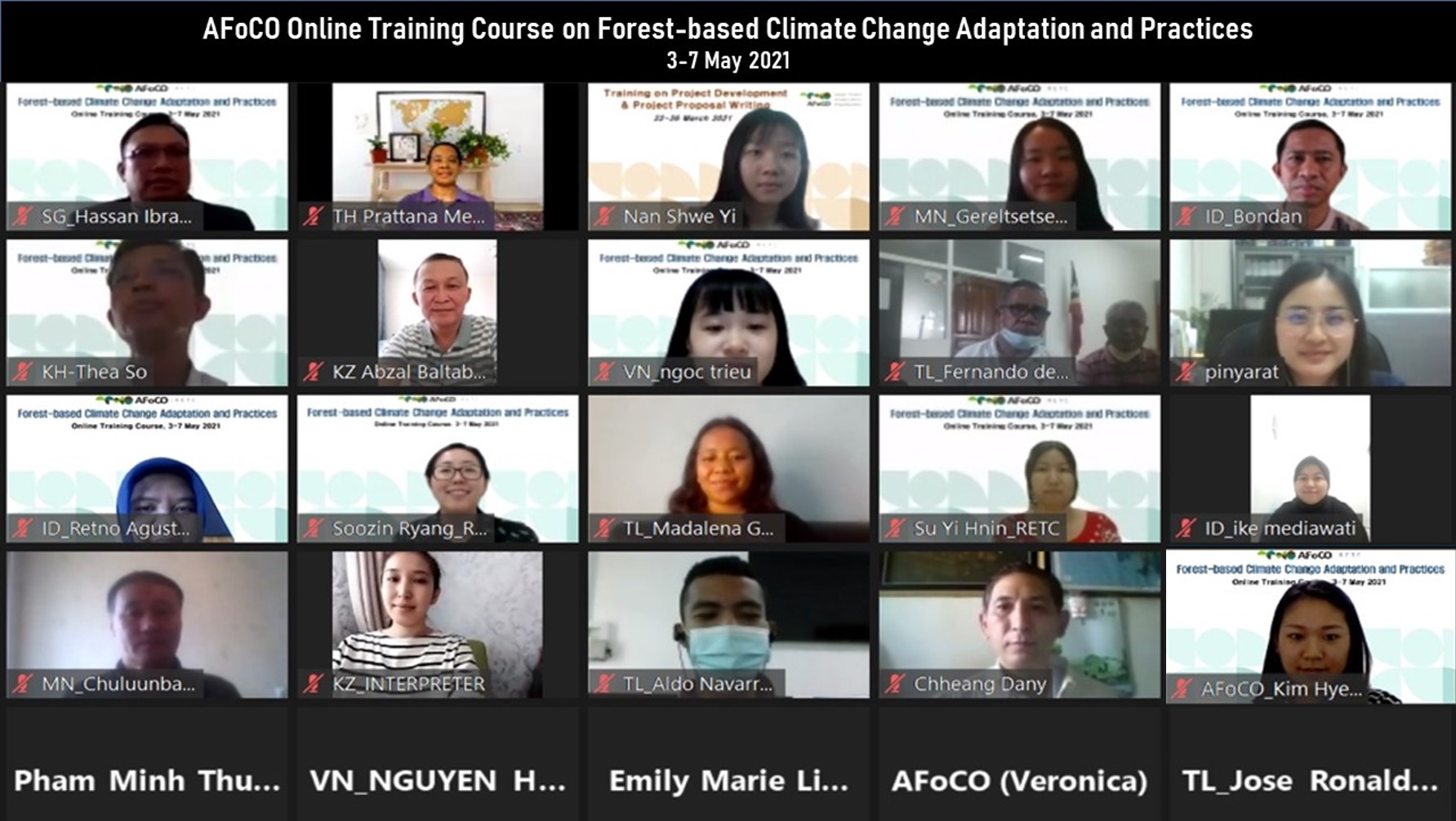The AFoCO RETC Regular Training on “Forest-based Climate Change Adaptation and Practices” (FBCCA) was conducted online from 3 to 7 May 2021. AFoCO welcomed 45 government officials and forestry experts in climate change adaptation and related work from 12 member countries. Speakers from Chiang Mai University, Kasetsart University, Center for International Forestry Research (CIFOR), The International Tropical Timber Organization (ITTO), the National Parks Board of Singapore, and the Oscar M. Lopez Center of the Philippines were invited to share knowledge and insights on climate change adaptation.
Also the first regular training organized under the topic of climate change adaptation, the training explored how diverse forestry practices can contribute to climate change adaptation. Participants echoed the importance of agroforestry, disaster risk management, community-based fire and water management, and urban forestry in adapting to climate change. These nature-based solutions are expected to actively respond to the global call to increase awareness of forest-based climate change adaptation and its impacts among policymakers in the forest and forestry sectors.
AFoCO’s Executive Director Mr. Ricardo L. Calderon encouraged participants to take collective action to adopt forest-based climate change adaptation practices, which he noted will eventually lead member countries and others in Asia to achieve Paris Agreement. During the lecture on the National Strategy on National Adaptation Plans (NAPs), participants also emphasized the potential of AFoCO in offering capacity-building programs in NAP preparation to member countries. Such initiatives also align well with the Nationally Determined Contributions, wherein countries are pushed to formulate and implement NAPs to identify medium- and long-term adaptation needs and develop and implement strategies and programs.
Vice Executive Director Mr. Jin Sunpil further requested participants to expand the outcomes of the training by developing roll-out sessions within their countries. Six participants from the Philippines who attended the Project Development and Proposal Writing Training held in March 2021 are preparing for a knowledge-sharing session with 200 regional and field officers. As much as the RETC regular training is targeted to investigate and explore future AFoCO projects, it is expected that these voluntary follow-up actions play an important role in developing capacities in member countries.
Climate change is a global phenomenon that has significant impacts on the ecological system. The AFoCO RETC will focus on the following climate change adaptation training courses and workshop while noting the following:
- Adaptation to climate changes refers to changes in processes, practices, and structures to moderate potential damages or harmful effects from climate change or to benefit from opportunities of such changes.
- Adaptive capacity encompasses two dimensions: the capacity to manage or moderate climate risks, including extreme climate events, and the capacity to respond to longer-term climate changes gradually.
- While resilience is generally understood as the capacity of individuals, groups, communities, and institutions to anticipate, absorb or cope, adapt, and transform in the face of climate variability and extremes that undermine food security.
- The Intergovernmental Panel on Climate Change (IPCC) in 2019 noted that “all assessed modeled pathways that limit global warming to 1.5 degrees Celsius or below 2 degree Celsius require land-based mitigation and adaptation including different combinations or reforestation, afforestation, and reduced deforestation.
- The Intergovernmental Panel on Biodiversity and Ecosystem Services (IPBES) noted that nature-based solutions are estimated to providing 37 % of climate change mitigation until 2030 to meet the goal of keeping climate warming below 2 degrees Celsius, with co-benefit for biodiversity.
- AFoCO emphasized the cross-cutting nature of forests about climate change and sustainable development that forests and forestry is not just a sole sector but an activity and a process that could provide synergy as well as co-benefits to be integrated into the country’s NAP from agroforestry, food security to clean energy to sustain the economy.

In response to the persisting COVID-19 pandemic, regular training courses planned in 2021 are slated to be held virtually. Click HERE to view the list of training courses in 2021.
Contributed by Hyunjeong Kim, RETC Internship Student



